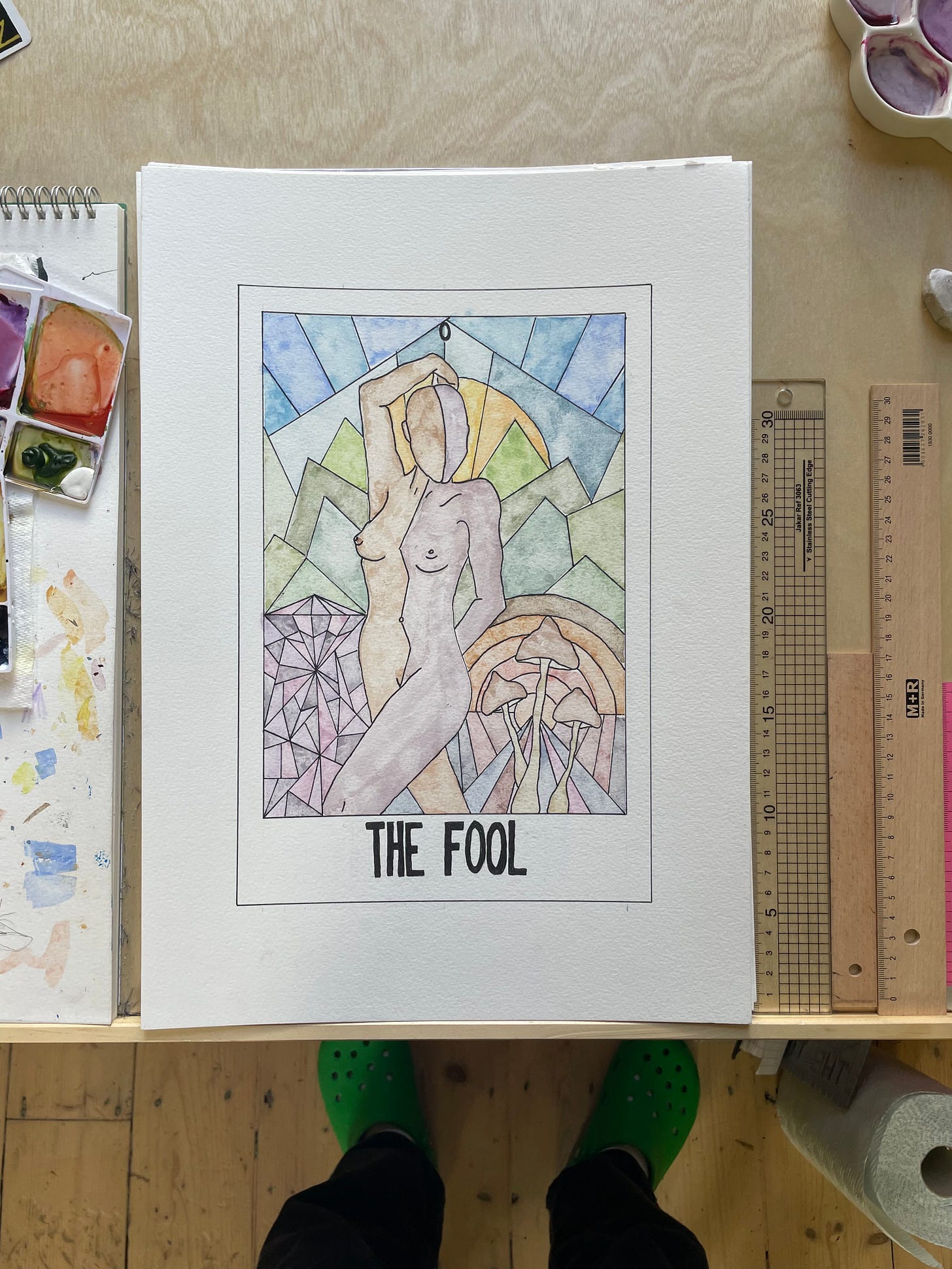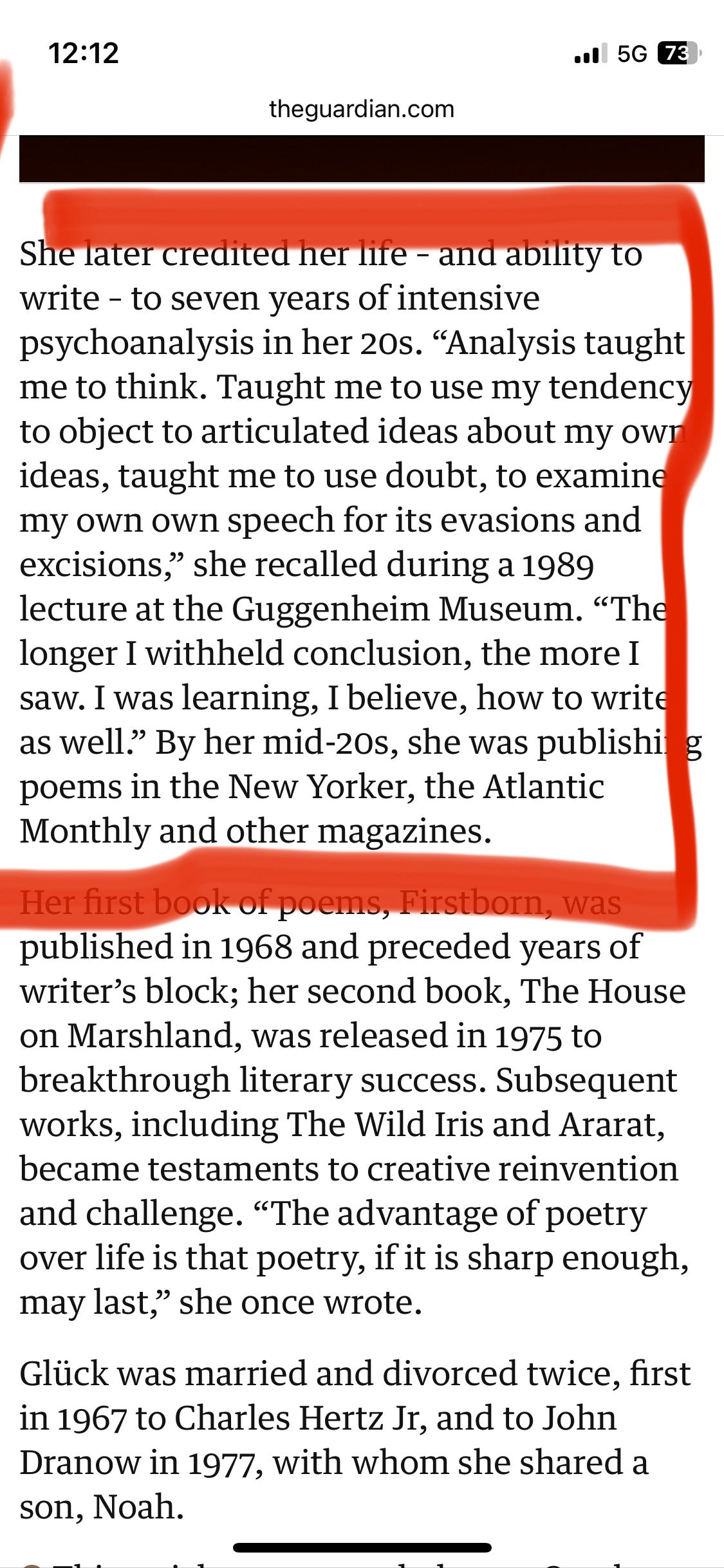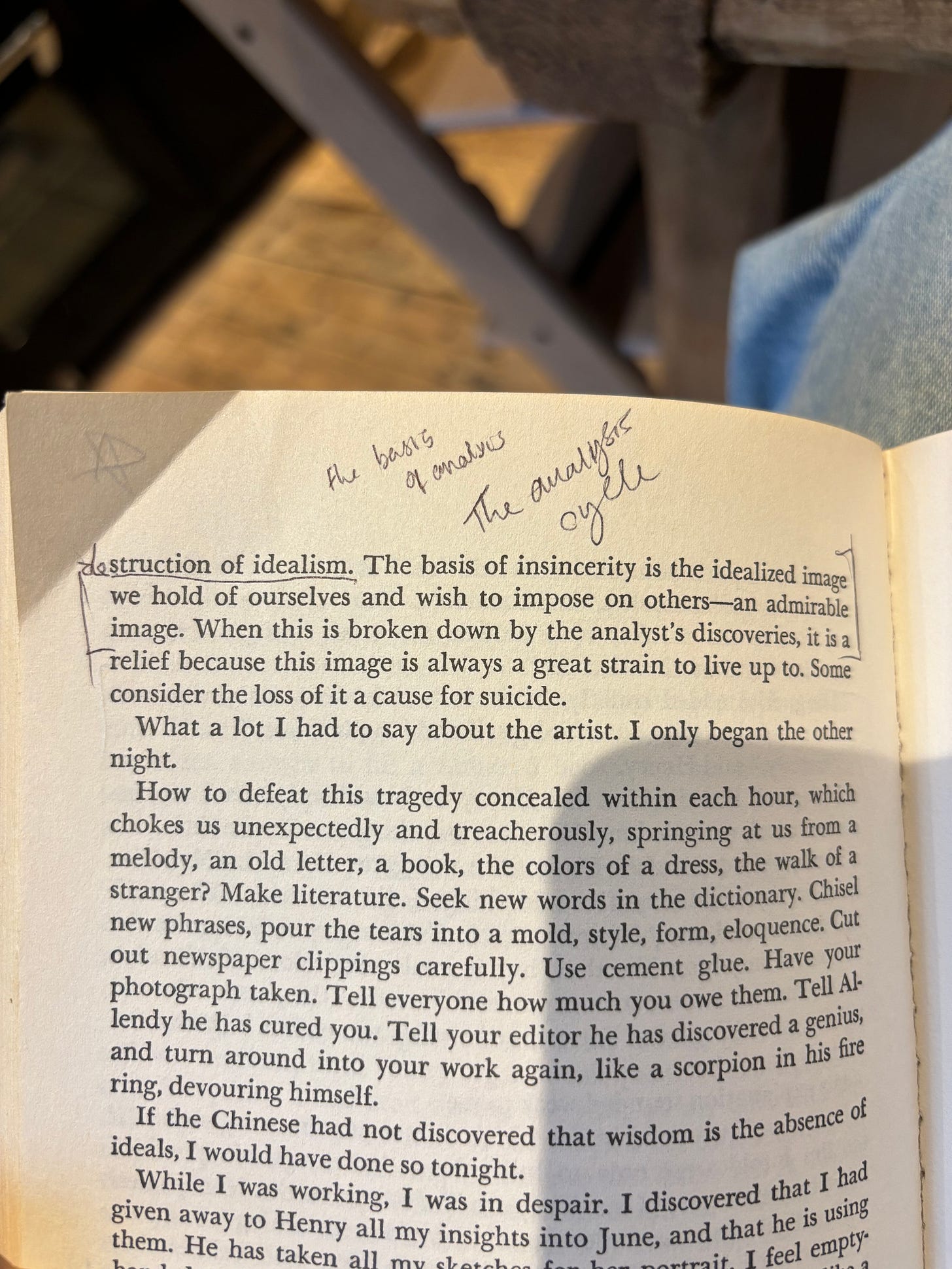The Tarot Of Songwriting - 00 The Fool
The gifts of naivety, filtered Henry Miller and psychoanalysis
Hello and thank you for joining me here at Patterns In Repeat. My name is Laura Marling and I’ve been writing songs and putting out records for nearly 20 years. Recently I’ve felt the urge to talk about the practice that has been the central preoccupation of my adult life - in some ways, as an attempt to explain it to myself.
Songwriting has been more than just my job or my art, it has been a vital part of how I have moved through life. It has been a mystical process at times. Often, I’ll be playing a song I wrote months ago and notice that it knew more than I did what was happening in my life. I’d like to encourage those who might be interested to use songwriting this way - as a means to understand the patterns that rattle ever outward from some unknowable depth at the core of our being. I use tarot cards this way too - not for divination but for internal speculation, as prompts to provoke deeper contemplation on what hidden desires are driving us.
Here at Patterns in Repeat you will find some of the following:
Reflections on songwriting
The Magpie - a repository for stolen ideas (mostly from books)
Guitar Practice suggestions
And for paid subscribers, guitar tutorials and exclusive acoustic songs and more…
I will be starting my substack era below in the form of a series I’m going to call The Tarot of Songwriting, in which I will be using the arc of the major arcana as a structure by which to discuss my own journey in songwriting.
The Fool -
My daughter started walking at eight months. Soon after, she began to run. And, of course, she fell often. But because I only ever put her down in soft places, grass or carpet, her landings were soft, too. As she grew more confident and keen on independence, her walking environments became more precarious and the consequences of falling more painful. Yet still, she ran, head first, as though she was diving at the finish line of a race. She was undeterred by the consequence. This is the gift of naivety. When I began my career as a songwriter, I was still in possession of this gift. This gift is what The Fool represents.
On my travels, I have had the great privilege of visiting the Henry Miller Library in Big Sur many times. It’s a small cabin, now bookshop, just off Highway 1, devoted to the writer and managed by a mythically tall and fascinating Norwegian. Over the years, I’ve noticed an ever-changing cast of young travelers who have worked there in exchange for room and board, I assume, who give the place a feel of magical, youthful transience. I’ve always found Miller's writing to be too masculine for me, personally. Like many writers whose greatness is self-evident but whose essence with which, for whatever reason, I am unable to engage (Phillip Roth and Norman Mailer come to mind), I came to enjoy him through a second pass, a filtrated retelling via another - and of course in Miller’s case, he had the exquisite Anaïs Nin to offer this alternate route to him. On my first visit to Big Sur, I purchased her diaries in which some aspects of her relationship with Miller are discussed. Before reading this, however, what delighted me on my first visit to the library was seeing his paintings: Beautiful, primary, crude, uncanny. Naive, you might say. They hung unceremoniously on the walls of the bookshop as if he had demanded they not be given undue reverence. Underneath each was a quote, one of which struck me profoundly, but I am unable to remember it verbatim and therefore unable to quote it directly, so I’m sorry to say in this instance I will be performing the task of filtration (I won’t suffer his actual writing to find the quote, forgive me!) - its essence being that one of his enduring attractions to painting was that its necessary ambiguity and subjectivity provided the opportunity to avoid causing hurt to those he loved. Unlike writing, the subject of his paintings could never be final and in this obscurity, he could be absolved of harm. How wonderful. How powerful to find that, after all those years - ignorance to the consequence of one's deeds. I felt genuine happiness for him. He found naivety again.
My father reminded me recently of a phrase I heard a lot (from him) when I was young - good artists do what they can, great artists do what they must. It haunted me in my early twenties when I realized I didn't have the ambition to do what I must. The meaning of this, as I understood it, was that the great artist would be undeterred by the constraints of personal relationships or responsibilities, and would not waste a moment reflecting on the trail of destruction left behind them in pursuit of their art. I always wanted to be a wife and a mother, and have always done well within the bounds of responsibility - I am loyal in my Aquarius nature. This is why I’ve never much cared to answer the question of what this or that song is about in absolute terms, I have always gone to great lengths to obfuscate in order to allow myself to believe that whoever might be the subject of a song cannot be harmed by its existence. This is not always the case and has given me pause more than once as to whether or not I should proceed with my art at all.
The potency of this platitude has slowly dimmed over the years and my conclusion on it now, in my thirties, my attitude matured, has worn away to something that only experience can resolve. An extended youth is the fuel of ambition. I think all young artists do what they must. Some meet the limitations of life, usually circumstance and relent to do what they can. But anyone naive enough will do what they must, without a second thought, because they are propelled by the force of youth. And if youth could be defined as energy meets freedom from responsibility, then a lucky few can hold on to its power long after its culturally expected expiration. This is the spirit of The Fool, in my understanding.
The Magpie -
Louis Glück and Anaïs Nin on psychoanalysis:
From Louis Glück's obituary in the Guardian, October 13th 2023
“Analysis taught me to think. Taught me to use my tendency to object to articulated ideas about my own ideas, taught me to use doubt, to examine my own speech for its evasions and excisions”
I was first introduced to Louis Glück by a girl I met at a grotty house party in east LA while I was living there in my early twenties. The girl was train hopping around the states, had just gotten a tattoo on her inner lower lip, and had been a student of Glücks at Yale - all of which I found very glamourous. I had mentioned that at that time, I was struggling to write, not feeling the urge to at all in fact. She informed me that Glück had spoken openly about enduring many fallow years without feeling the urge to write poetry, the craft with which she was so embedded as to be teaching it at Yale. I read Proofs and Theories. I think it was Glück that introduced me to the power of ambivalence and subsequently, psychoanalysis that helped me cope with it.
“The longer I withheld conclusion, the more I saw. I was learning, I believe, how to write as well.”
I too spent a few years reclined on the analyst’s couch, and I suppose this is what drew me to this quote. I think psychoanalysis made me a better reader, of things, of people (who are things in a way), situations, patterns. I can’t say it made me a better writer. It enriched my experience of the world, mostly by helping me cope with ambivalence, but in bestowing these gifts on me, it was necessary to remove a fair amount of the precious naivety that had propelled me so far in my artistic life. The contradictions I was being confronted with rendered themselves unsustainable and I was forced to give up some aspects of my outward persona. For a while, after I ceased analysis, I felt dishevelled, and moments arose when I wondered if subjecting myself to such intense internal speculation was worth giving up the gift of ignorance. A few years have passed since then and I wouldn’t change it. I am, like most others, a complicated person, at peace with myself most of the time and able and willing to run a decent internal moral inventory if the dial is ticking a little too far into the red zone. And I learnt to write from a more authentic place, eventually.
Anaïs Nin references exactly this experience in volume one of her diaries -
“The basis of insincerity is the idealized image we hold of ourselves and wish to impose on others - an admirable image. When this is broken down by the analyst’s discoveries, it is a relief because this image is always a great strain to live up to. Some consider the loss of it a cause for suicide.”
P. 128 - Diaries of Anaïs Nin, Volume 1, 1931-1934
This comes in her description of a conversation she was having with Miller about the goal of analysis and “the human relief of depending on another” - which she notes “upset him”. Interestingly, the medicine she suggests to ease the pain of the death of one's image-ideal - go further into making art.
Guitar Practice -
I went to the Adrianne Lenker show at the Barbican a few weeks ago. I found it disturbing to witness someone so talented in person. It was a religious experience. I also found it so charming to see so many beautiful young people there, in their gorgeous outfits, silently weeping alongside me. I hadn’t been out in a while.
I came away wanting to take up with a thumb pick again, the kind that wraps over the thumb - I’ve tried and failed many times to get the hang of one, but never found one that really felt like it fit? And never quite figured out how to get the right tone from a metal one, which I think was what she was using. If you have any suggestions, please let me know in the comments…
Also, I’ve been trying to play along to Atahualpa Yupanqui records…trying meaning catching the occasional chord or run between grimacing at my own incompetence - still, good for expanding the pallet.







Is she gonna write her book someday? ✨❤️
As if you hadn’t already done enough for me with album releases such as Semper Femina and Once I Was An Eagle—both of which have made me feel that I was, in fact, not the eldest daughter after all. That, as it turns out, I seem to perpetually have the voice of an older sister, a few steps ahead of me, guiding me one song at a time.
So anyway, thank you for discovering substack and sharing your beautiful words. You’ll never really know how much I appreciate you and all your works in their many formats.